All living and nonliving things and all their interactions in an area
Ecosystem
An interconnected set of food chains
Food Webs
a) air and plants
b) rocks and plants
c) water and air
d) the sun and plants
The correct answer is c! Both air and water are nonliving things that living things need to survive.
What are the three types of consumers?
Carnivore, Herbivores, and Omnivores
Look at the picture. What in the picture is an example of a single population?
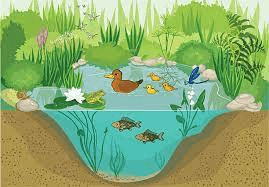
a) the water
b) all of the animals
c) the ducks
d) the grass
The correct answer is C!
An organism that breaks down the remains of dead plants or animals without need for internal digestion
Decomposer
All the interacting members of a species in a single area
Population
The interaction between a clownfish and an anemone is an example of a ____________ relationship.
a. mutual
b. adaptive
c. competitive
d. symbiotic
The correct answer is d! This is an example of a symbiotic relationship.
Which of the following correctly shows the order of the flow of energy within a food chain?
a. the sun ← producers ← consumers ← decomposer
b. decomposer → consumer→ producer→ the sun
c. the sun → consumers → producers → decomposer
d. the sun → producers → consumers → decomposer
The Correct answer is D!
In a study of the habitat of a population of raccoons, scientists found that the number of raccoons actually increased where people built houses. What might the scientists conclude from this observation?
a) Raccoons no longer had access to water
b) Raccoons found more food living near people
c) People brought many new predators
d) Building houses destroyed the raccoons’ habitat
The correct answer is B!
A single, self-contained, living thing
Organism
The space, conditions, and all the living and nonliving things around an organism
Environment
Animals depend on other living things, such as plants and other animals. They also depend on nonliving things. Which of the following is an example of a living thing depending on a nonliving thing?
a. a bunny eating some grass
b. deer drinking water from a river
c. a lion eating a zebra
d. fungi decomposing a dead animal
The correct answer is b!
Look at the food chain. Name all of the consumers. 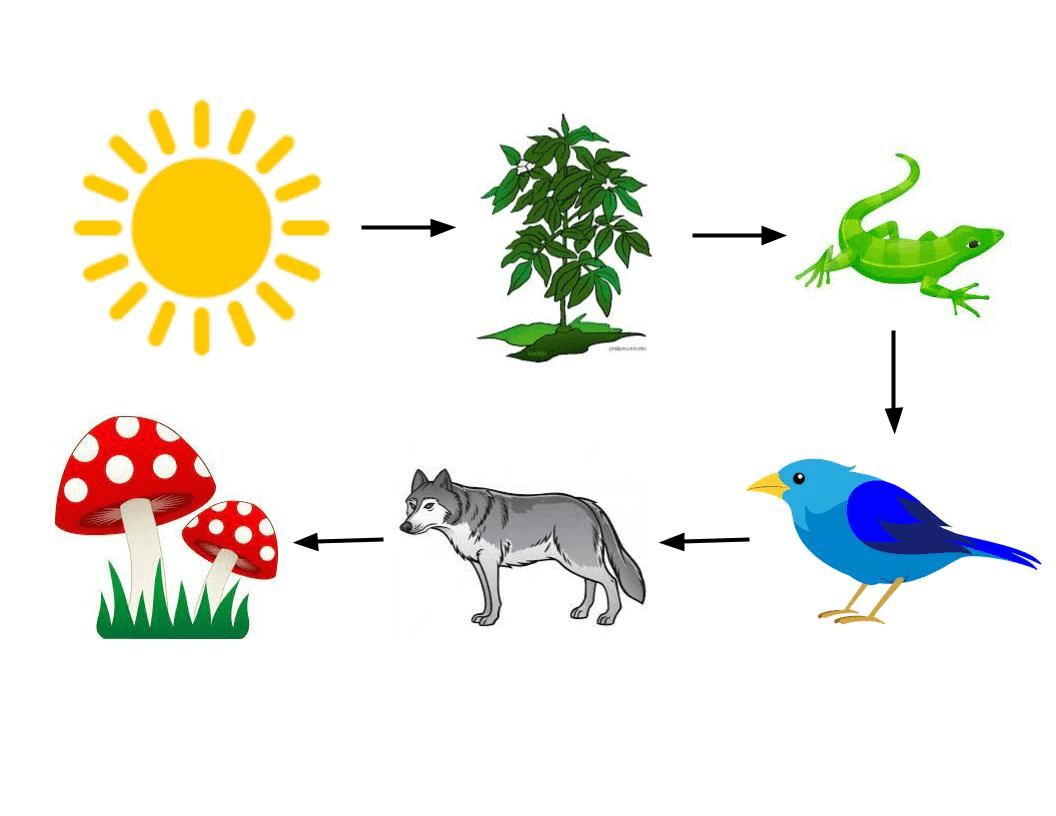
The lizard, bird, and wolf are all consumers.
Look at the picture. Trees being chopped down in the forest is an example of an environmental __________.
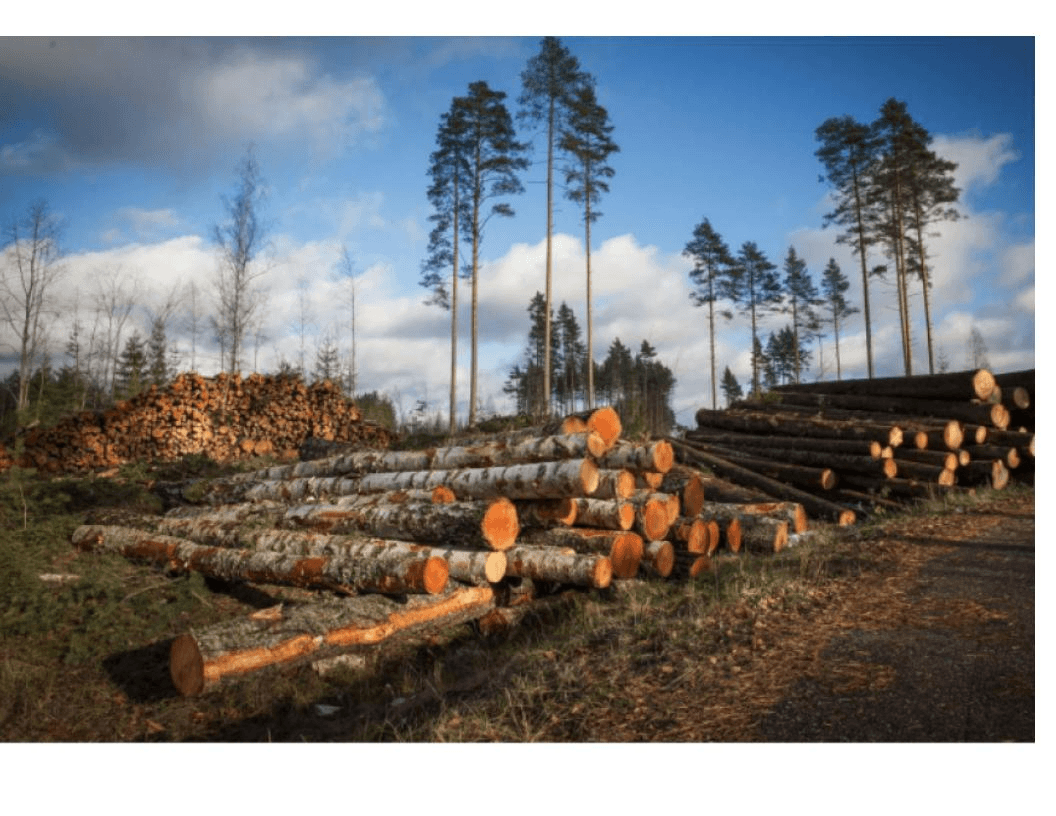
impact
A long-term relationship between two different kinds of organisms where one or both receive benefit
Symbiotic
An increase in the number of individuals of a given species over what its ecosystem can sustain, often with both direct and indirect effects on other organisms in the ecosystem
Overpopulation
Which is an interaction of a living organism with a nonliving component of an ocean ecosystem?
a) A sea turtle burying its eggs in sand
b) A killer whale eating harbor seals
c) Dolphins communicating with each other
d) A jellyfish stinging its prey
The correct answer is A! The turtle interacts with the sand which is nonliving.
Look at the food web. What are the producers?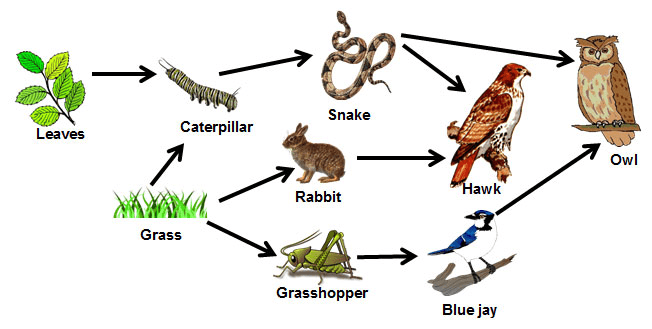
The grass and the leaves.
A highway is built through a forest. This will most likely have which of the following effects on the organisms in the area?
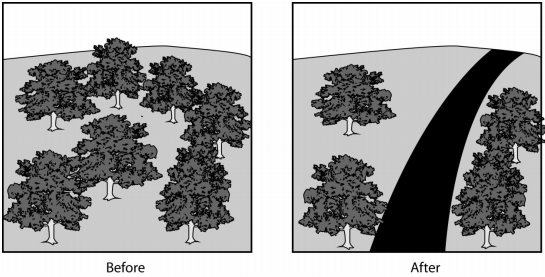
a) Increase the number of bird species in the forest
b) Raise the birth rate of animals on the forest floor
c) Eliminate all species of plants found in the forest
d) Make it more difficult for animals to move around the forest
Any characteristic that helps a plant or animal survive
Adaptation
The maximum population size that can be sustained by a given environment
Prairie dogs eat grasses and some insects. They build their homes by digging tunnels underground. Which of the following environmental conditions would best meet the needs of a prairie dog?
a) cool temperatures
b) less sunlight
c) loose or soft soil
d) few plants and trees
The correct answer is C! Having soft soil in their environment makes it easier for the prairie dog to dig holes.
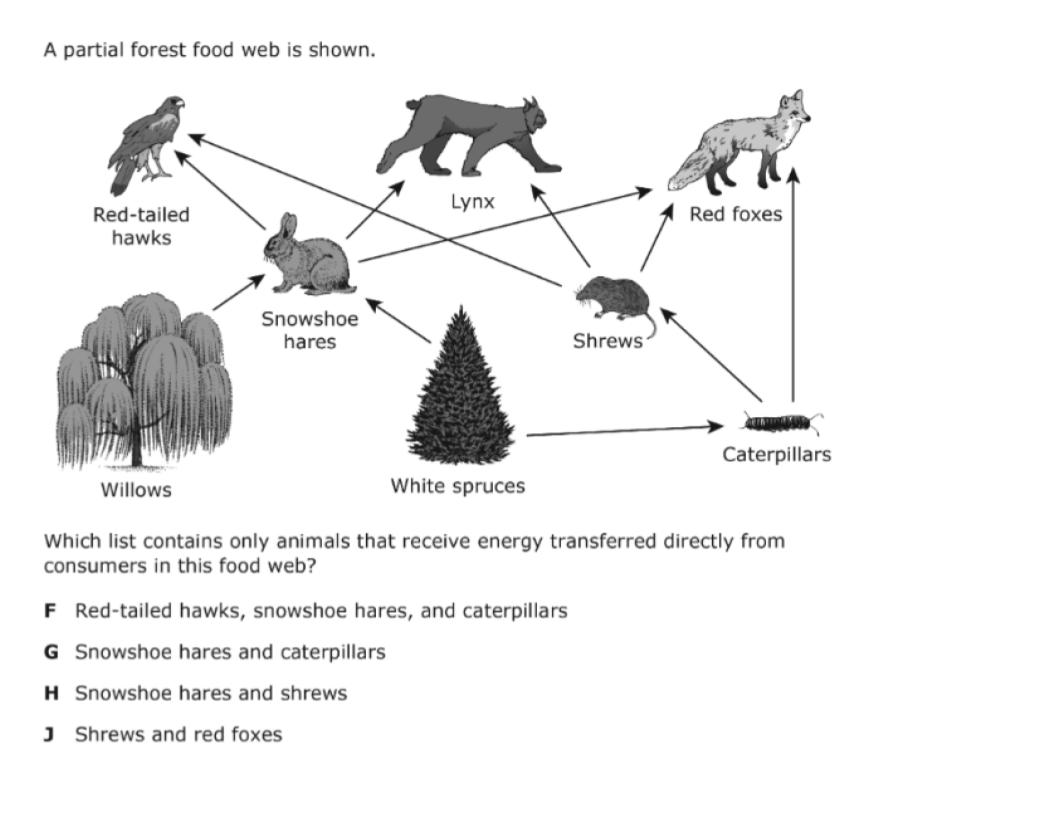
The correct answer is J!
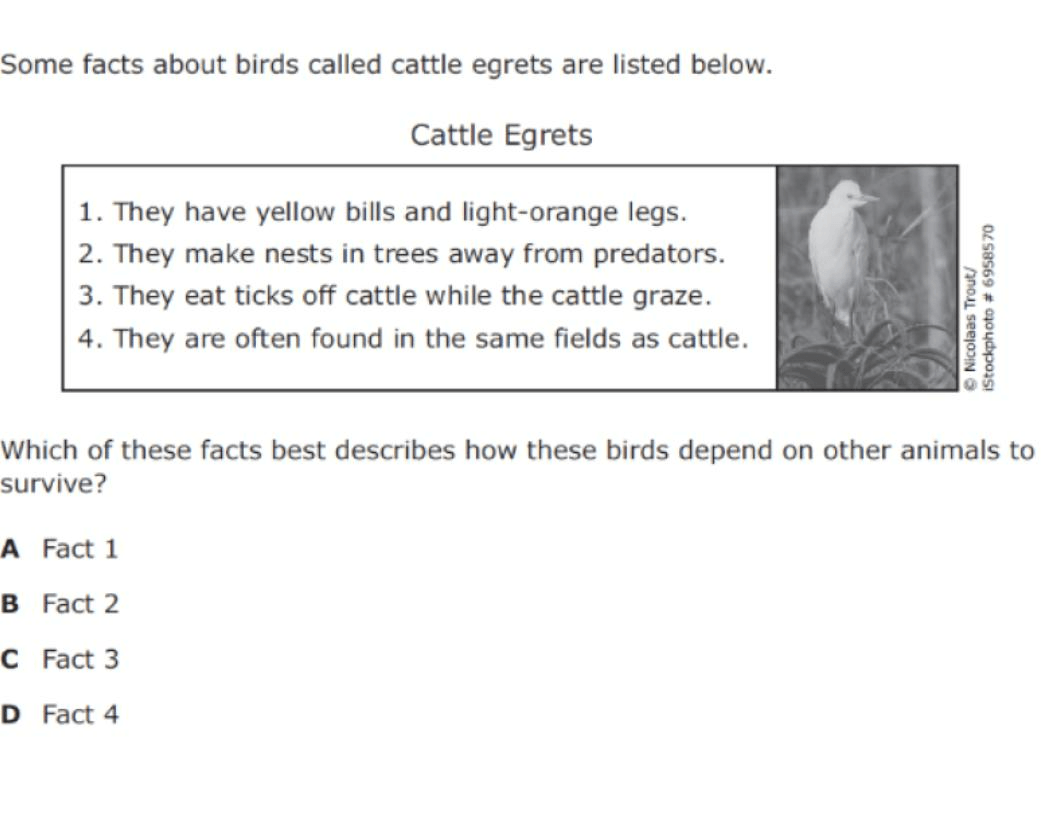
The correct answer is C!